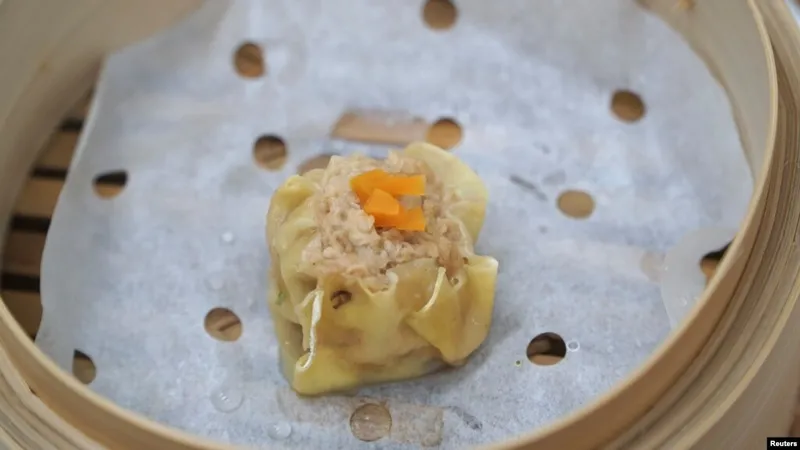The company Shiok Meats in Singapore aims to bring laboratory-grown shrimp to the food industry.
Concerns about health, animals and the environment are leading more people to remove meat from their diet. Plant-based meat alternatives, popularized by Beyond Meat Inc. and Impossible Foods, increasingly appear in supermarkets and restaurants.
But what some people call clean meat - meat grown from cells in a laboratory - is still an idea that is just beginning.
More than 24 companies are testing lab-grown fish, beef and chicken. These businesses hope to enter the alternative meat market, which could be worth $140 billion by 2029. That estimate comes from Barclay’s, a financial services company.
Shiok Meats grows its product by taking shrimp cells and keeping them at a temperature of 28 degrees Celsius. They are then given nutrients in a solution. The cells become meat in four to six weeks.
This lab-grown meat’s price is high. One kilogram of it now costs $5,000, said Shiok Meats’ Chief Executive Sandhya Sriram.
At that cost, a single pork and shrimp dumpling could be as much as $300.
Sriram, a vegetarian, hopes to cut the cost to $50 for one kilogram by the end of this year. She also hopes to sign a new low-cost deal for nutrients that help grow the shrimp cells.
“We are looking at next year, so we might be the first ever company to launch a cell-based meat product in the world,” Sriram said. Shiok Meats still needs approval from the city-state’s food regulator.
Although people increasingly demand meat alternatives, cell-based meat companies still face resistance to their products.
In Singapore, some people said they would try lab-grown meat.
“I am willing to try,” said 60-year-old Pet Loh, while she shopped for shrimp in a Singapore market. “I may not exactly dare to eat it frequently, but I don’t mind buying and trying it because the animals in the oceans are declining.”
Any alternative ways of making animal protein without harming the environment are positive, said Paul Teng, a specialist in agritechnology at Nanyang Technological University. But, he added, more studies are needed to understand any negative results of making cellular protein.
I’m John Russell.
